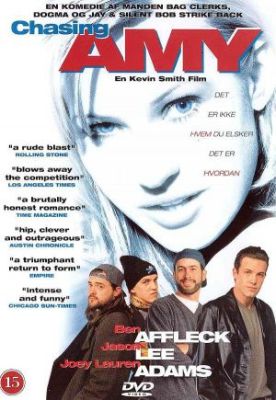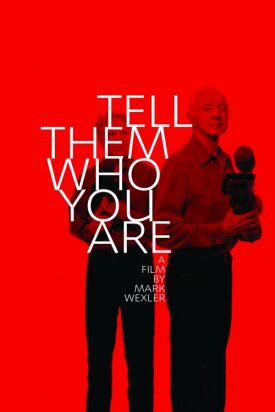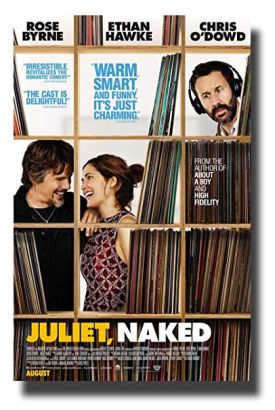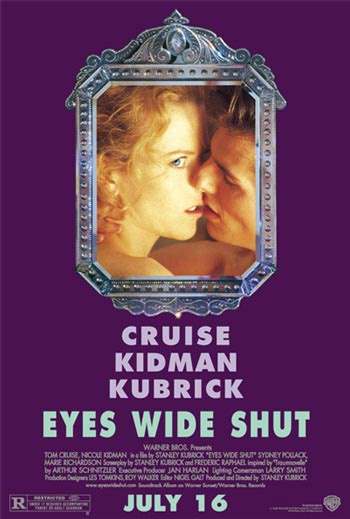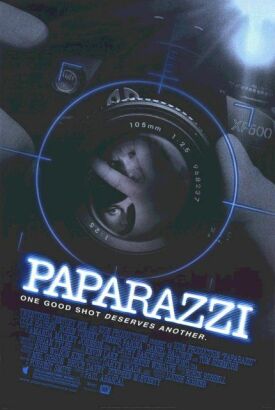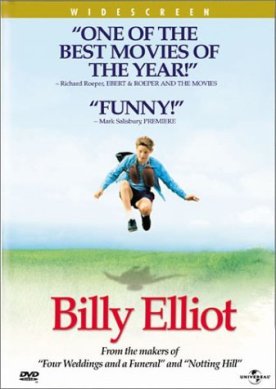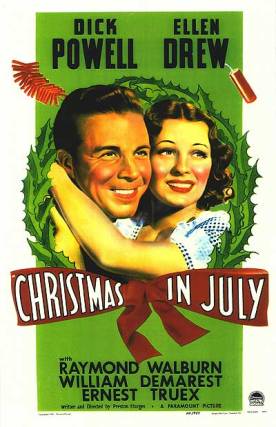Chasing Amy
Chasing Amy is another slacker movie and thus another piece of redundant evidence that America has become far richer than is good for it. Boys the age of this film’s director, Kevin Smith, whose earlier efforts are Clerks and Mall Rats, ought to be doing their army basic training, or serving as apprentices at some factory (or in the movie business) and not making incredibly silly and juvenile movies like this one for silly and juvenile audiences who have nothing better to do than to watch them. It is interesting to me, however, that Smith himself at some level seems to know this. Like Richard Linklater’s SubUrbia, it includes within itself an implicit condemnation of the idleness and posturing and self pity that it otherwise celebrates.
The story concerns two young guys called Holden (Ben Affleck) and Banky (Jason Lee) who are best friends and collaborators on a successful comic book called “Bluntman and Chronic.” Holden falls in love with a girl cartoonist called Alyssa (Joey Lauren Adams) who turns out to be a lesbian. As is usual in this situation, her sexual orientation is obvious to the audience long before it is to Holden, so that the comedy of his discovery of it can be spun out. This is one of the movie’s many mistakes.
Holden and Alyssa become close friends anyway and Banky is extremely jealous of the girl. Almost the only funny scene in the movie comes when Banky gives Holden a little quiz. He draws a cross-roads with a schematic one hundred dollar bill in the middle and at equal distance from it he sketches in a “male-friendly lesbian” , a “man-hating dyke” , Santa Claus and the Easter Bunny. Which one of them will get to the $100 bill first? Holden answers, the man-hating dyke. And why? Holden doesn’t know. So Banky proceeds to tell him: “Because the other three are figments of your imagination!”
But things are taken to another level when Holden can hold-in no longer and declares his love. Alyssa reacts badly at first, but then runs back to him and they start a passionate affair. She thinks he is what she has always wanted and he is equally passionate about her. Now this is dangerous territory. I expect young Mr Smith will find himself in some trouble for suggesting that that now-universally derided cliché of the Lesbian who only needs the love of a good man might actually be true. It is not the only run-in that the film has with political correctness. Near the beginning it portrays a rabid black power advocate called Hoop (Dwight Ewell) denouncing comics for perpetuating white oppression. He asks rhetorically what you call it when the blue-eyed cracker, Luke Skywalker, destroys the Death Star of the black brother Darth Vader. Banky speaks up from the audience: “Intergalactic civil war?”
“No!” says the black guy: “Gentrification!” Soon afterwards he apparently shoots Banky and the rest of the roomful of fans runs away in panic. Of course it is all a charade, and the by-any-means-necessary black killer turns out to be very camp homosexual, or “faggot” as he is more than once unselfconsciously called here. He is shooting blanks in more than one way. The mask of rage and butch he simply sees as a professional necessity, and he comments to one of his white friends: “Look at what I have to resort to for professional respect.” He also has a furious argument with Banky about whether or not Archie in the comics that bear his name is a homosexual. Banky’s own latent homosexuality (which comes out in his jealousy of Alyssa’s relationship with Holden) is a constant theme of Hoop’s.
Banky finds out that Alyssa has a rather adventurous sexual past and tells Holden about it. Holden finds it very hard to deal with. Alyssa tells him that she was “an experimental girl” but now she has found what she wants. Namely him and him alone. He proposes that the only way out of the mess they are all now in is for them all to sleep together. Alyssa tearfully informs him that she is past that kind of wild sex now— “or maybe I love you too much and I’m hurt that you would want to share me with anyone, because I wouldn’t want to share you. I love you and I always will, but I’m not your f***ing whore.”
It’s a good speech from the little lady, but it is a little obvious to grown-ups. This excited discovery of the most basic things about relationships is one of the things that mark this as an immature work. But at least it is discovering the basic things, which means rejecting the worldly wisdom of the real-life inspiration for Bluntman and Chronic, Jay (Jason Mewes), whose dicta include: “You know what Cube says, life ain’t nothin’ but bitches and money” and “There’s one bitch in the world—one bitch with many faces.” It’s just a shame that Alyssa and Holden and Banky never grow out of the comic books themselves.
But what else could you expect from a film whose series of dedications at the end of its credits includes one to God (Oh God!) and another is to the less than startlingly talented “Joey”—presumably the director’s girlfriend as well as the film’s star—to whom he writes: “I love you Poopie—and the first one that laughs gets decked.” It is a cruelty on the part of this film’s financial backers that they have made it possible for this young man, Kevin Smith, to do something about which he will be cringingly embarrassed for the rest of his life—if he ever grows up.
Discover more from James Bowman
Subscribe to get the latest posts to your email.

